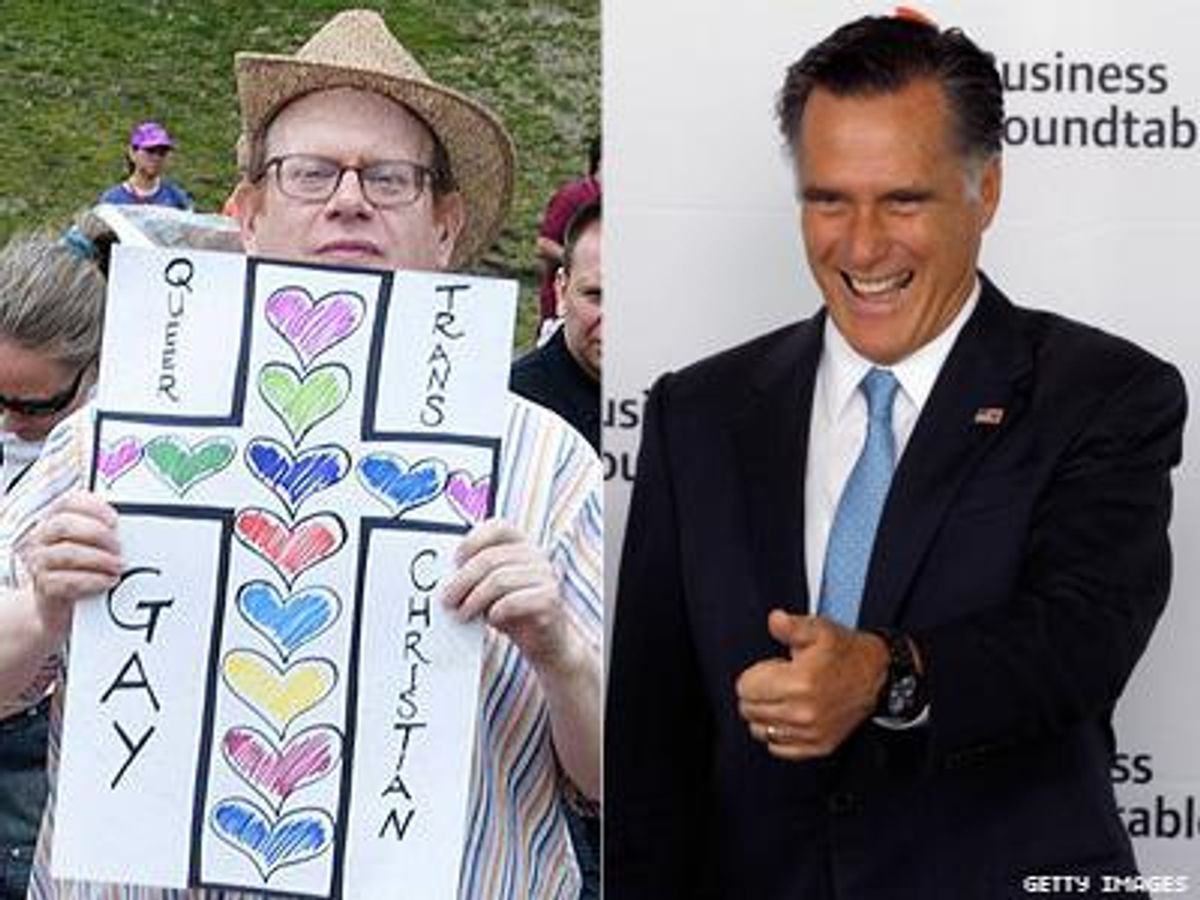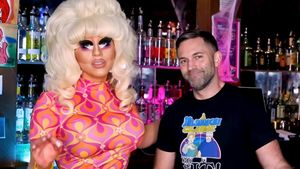Bullying of LGBT kids is something I take personally. I grew up in rural Mississippi during the era of "massive resistance" to desegregation. Conformity was prized above all else. Older boys who detected an androgynous gender style when I was in elementary school then used harassment to masculinize me. Bullying was the means by which social and gender role conventions were enforced and uniqueness suppressed.
It worked on me. I modified my posture, the way I crossed my legs, and how I carried my school books all to get the bullies off my back. The word "sissy" still hits me like a splash of acid. I did everything I could to avoid that label, which was the worst thing a boy could be called.
Forced conformity comes at a frightful cost, however, as I learned when I entered adolescence. The part of you that is denied won't leave you in peace; it sears your soul and breeds a profound sense of alienation and isolation. One senses the bleakness of a Hobson's choice: only by pretending to be something one is not can one get by in the teenage social world. The dissonance was too much for me, and on two occasions, at ages 15 and 16, I attempted suicide.
Since I had failed on the first try, I took an abundance of sleeping pills the second time. I lay in my bed listening to Brahms' epic First Symphony and waited to die.
I survived, however, and my parents sent me to a psychiatrist who, unbeknownst to them, was gay. He challenged the internalized homophobia that pervaded my consciousness. When Anita Bryant launched her jihad against gay rights when I was 17, I recognized that her mean-spirited attempts to "save our children" were endangering the lives of people like me. In many ways, she set me on my life path, which involved fighting her and her ilk with every fiber of my being.
Going to Boston for college and law school and adopting the liberal and academic mecca as my home, I immersed myself in activism as a sideline to my career in the law. I went into state government when pro-gay Republican William Weld became governor of Massachusetts in 1991. I practiced tax law but poured my passion into leading the Massachusetts Governor's Task Force on Hate Crimes. After years of optimizing data collection about hate crime occurrences, the Task Force concluded that any solution to bigoted violence lay with the young. It was clear that bullying is the precursor of hate crimes.
An anti-bullying initiative got underway in 2001-2002 with the strong support of Republican Governor Jane Swift. The plan was to survey middle schools around the state to find out what practices they were using and the results they got in terms of bullying reduction. The survey data would be synthesized with the latest academic research on bullying prevention, and packaged in a format that would enable school districts to customize counter-measures -- without the expense of bringing in outside consultants to create anti-bullying programs from scratch.
When Mitt Romney became Massachusetts governor in 2003, the anti-bullying guide was a rough draft, not ready for publication. The Task Force staff were continuing work while I was promoting a comprehensive initiative to accompany the release. Then I got a call from my Task Force Co-Chair who told me that the Task Force was being defunded. The news hit me like a body blow, but I clung to hope that the guide might somehow be spared. That hope died within a couple of months.
On my own, I completed the guide and expanded the academic source material that gave it a solid grounding in the science of bullying prevention. Then I approached another state agency, the Governor's Commission on Gay and Lesbian Youth, for the roughly $10,000 required to publish and distribute the guide. They were enthusiastic. Publication was on track to happen in May of 2006, but the Romney administration intervened to stop production, we now know, because the guide included the words "bisexual" and "transgender." At the time I deduced that Romney's solicitude for right-wing opposition to bullying prevention was to blame, but had no proof.
There's a happy ending to the story of the guide, because Romney was replaced by a staunch supporter of LGBT rights, Democrat Deval Patrick, as governor in 2007. The Patrick administration released the guide statewide in April of 2008. It's still up on the Internet as a free resource for schools who want to do the right thing by targets of bullying. And the bullying of LGBT youth is addressed unabashedly.
We've made progress in bullying prevention since my teenaged years in the 1970s, but we are not nearly where we need to be. Homophobic messages through the media and from influential adults and peers implant the seeds of self-hatred in our young; sustained bullying is simply beyond the capacity of the most vulnerable teens to endure. It is not enough to send encouragement to beleaguered youth promising better times ahead. We must make bullying stop. I won't rest until this transformative change has occurred.
DON GORTON is chairperson of the Anti-Violence Project of Massachusetts and co-author ofDirect from the Field: A Guide to Bullying Prevention.



















































































